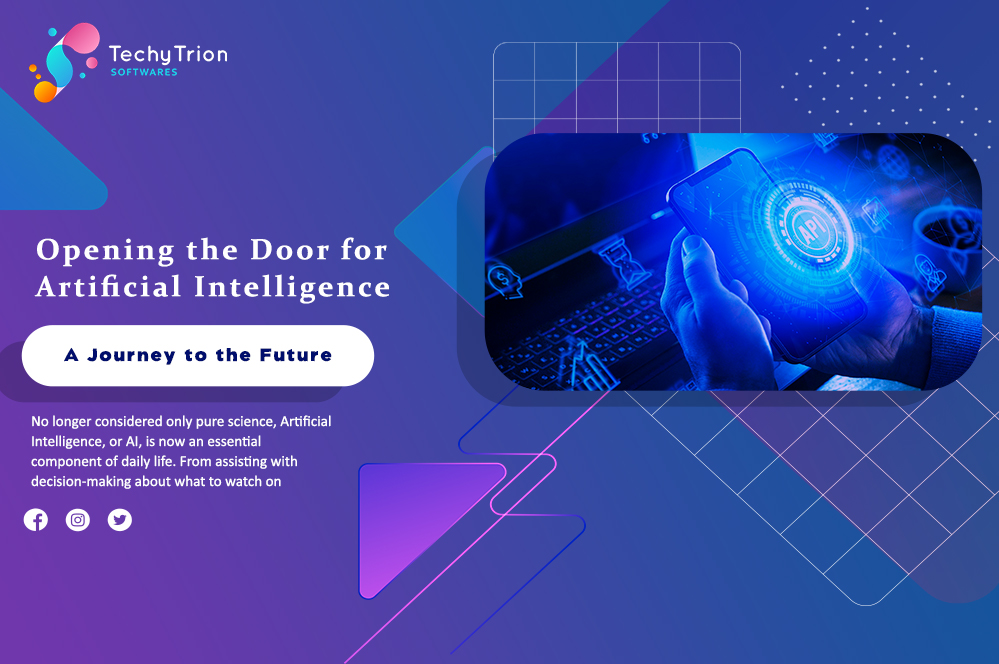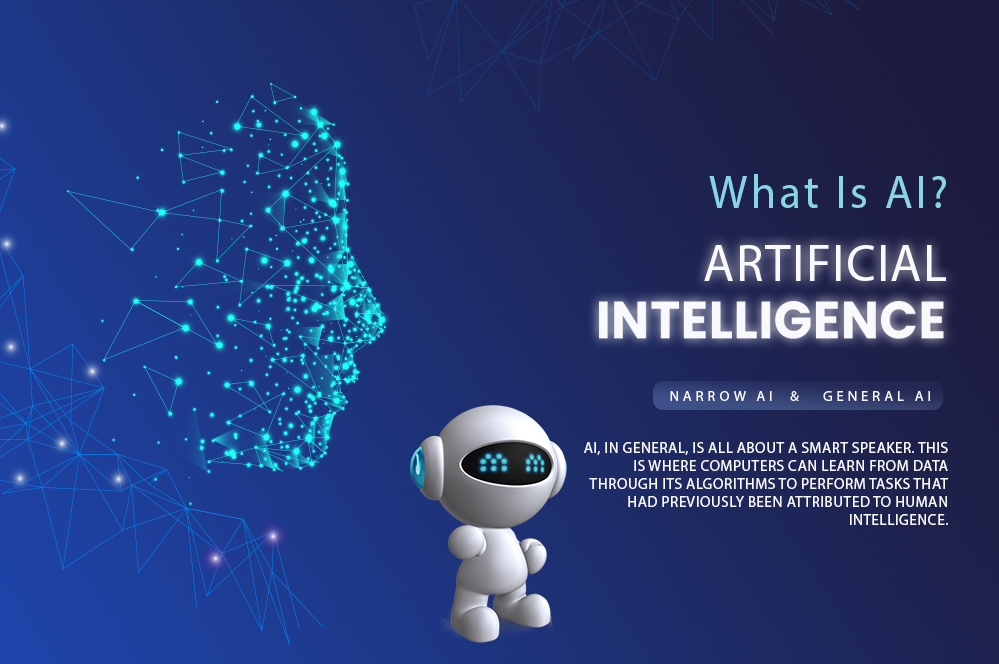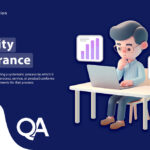
Opening the Door for Artificial Intelligence : A Journey to the Future
No longer considered only pure science, Artificial Intelligence, or AI, is now an essential component of daily life. From assisting with decision-making about what to watch on streaming sites to creating fields with challenges ahead, AI has radically changed the world. We will take a more natural look at AI, how and where it’s used, the challenges it faces, and its future.
What Is AI?
AI, in general, is all about a smart speaker. This is where computers can learn from data through its algorithms to perform tasks that had previously been attributed to human intelligence. Be that as it may, AI can still be broadly categorized as follows:

Narrow AI: This includes AI that is tuned to do just one job-from phone virtual assistants to algorithms that recommend products online.
General AI: A theoretical type that thinks and reasons like a human-a thing that could tackle any horizontal quandary that comes its way. Researchers and engineers are still on the drawing board to make this viable.
Superintelligent AI: This is perhaps a term used to refer to the higher intelligence level in AI on most tasks compared to human intelligence. Though it truly sounds exhilarating, many questions arise as to how it would look like with the redefined scope of play.
How Is AI Used Today?
Think of AI as jack-of-all-trades; it will save our map time, if not some money. Some people can name their uses.

In health care : Artificial Intelligence allows for disease detection as early as possible through tools that analyze medical images. It also enables personalized treatment in real-time appropriate to each patient’s needs.
In Retail: AI is being leveraged by banks to detect fraudulent transactions in real-time while investment apps use it for assisting users in managing their money.
There are online stores that know what you want to buy even before you realize it as a necessity. This is AI analyzing your browsing habits and interests.
In education, teaching has been ameliorated where students have AI-altered lessons at their own pace according to their needs. It helps tired teachers do their administrative work light-heartedly.
Transportation: As AIs in train mode, self-driving cars and smart traffic systems are gradually moving from the elusive to the more realistic. While the AI may seem beneficial, we must discuss where ugly begins, since there do come serious challenges.
Ethics and Bias: Sometimes in biased decision-making for some AI systems in favor of one over the other party-it sometimes gets to this as sometimes it fails to get a good age of diversity, or at times it outrightly forgets to embed fairness into how data should be processed. Thus, AI is a matter of fairness that must always be kept in mind.
Privacy: AI captures data live right from the user. The biggest challenge is bringing the balance in between privacy-so-value while sharing the information and innovations.
Complexity: Most of the AI runs black-box-meaning: Not even someone who is in the field can explain how the conclusion really was.
Regulation: On the government and organizational fronts, intense efforts might seem to be efforts to regulate AI, not really to kill creativity or provide safety and fairness.
Future Possibilities
The editorial suggests that the overtake of AI with its different prospects is something very important to remember. Discussions, just hints of what humanity may expect in the days to come.

Human-AI Cooperation-AI is not meant to be a substitute for human agencies but should therefore work with humans in partnership to enhance their creativity and productivity.
General AI Development-Scientists would like to create systems that can think and learn in an analogous manner to different ways of human comprehension. Although this is not yet real, staining assessments are being recorded.
Assisting Earth-AI is to play a significant role in global challenges, being ahead of nature’s onslaughts by prediction or optimizing national necessity.
Conclusion
Artificial Intelligence will probably change how we live, work, and relate with our world, apart from being a super tool in itself. Setbacks notwithstanding, the technology holds plenty of options for improving and tackling global challenges. Following the growth and deployment of AI in an ethical way should see everybody enjoying its benefits.





 Book call
Book call



